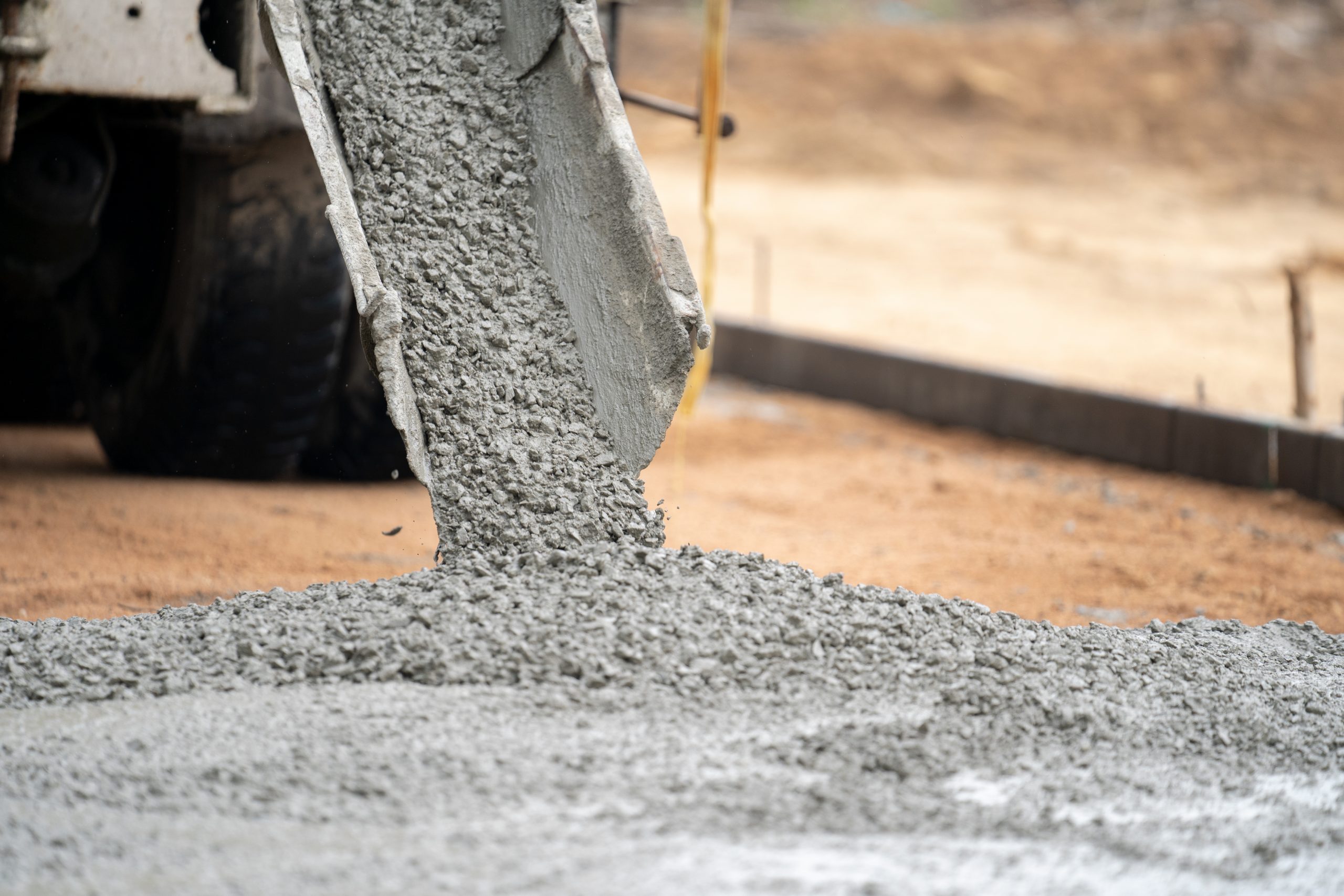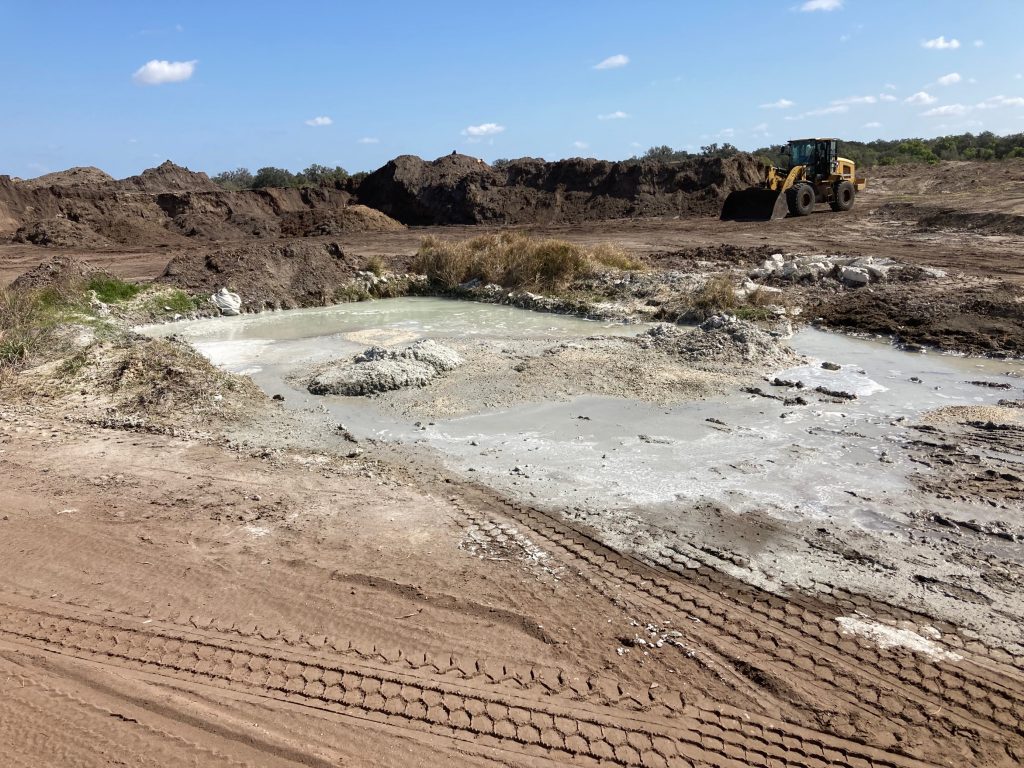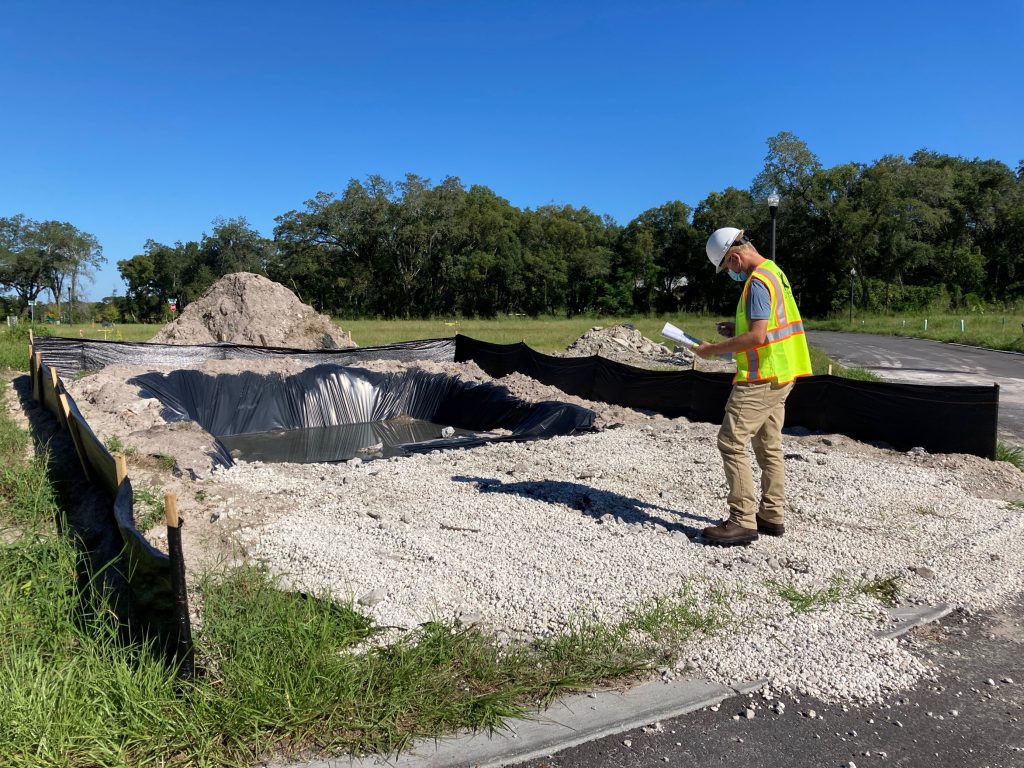
First, what is concrete? The definition directly from encyclopedia.com states, “concrete is a hardened building material created by combining a chemically inert mineral aggregate (usually sand, gravel, or crushed stone), a binder (natural or synthetic cement), chemical additives, and water.”
There are ingredients added to ensure the consistency and ultimately the hardening reaction for concrete. One specifically is called an accelerator, which affects setting time, and includes such chemicals as calcium chloride, aluminum sulfate and other acidic materials. Sounds like concrete might not be good for the environment if it becomes untamed.

Most construction sites use concrete for their specific projects. Concrete, or sometimes referred to as cement, is the primary material used today to build and modernize our world.
At all construction sites that are required to have a Florida Construction Generic Permit (FCGP), must ensure all concrete trucks, and any other construction equipment managing concrete production or usage, to not perform washout at any specific location that can expose the contaminated runoff to flow directly into a waterbody or stormwater conveyance system.
Concrete washouts should be located far away from any storm drain or open drainage facility and it is critically important the washout area is prepared prior to any concrete activities at the site. There are specific measurements and build-out criteria that must be followed to ensure maximum success to minimize stormwater contamination which can leach into the ground and contaminate groundwater. These specifications should be in the Stormwater Pollution Prevention Plan (SWPPP) on site if a concrete washout area is in use.

An efficiently built washout that will adequately accommodate the volume of work is critical. Additionally, a well-maintained washout area is extremely important to ensure it is always working properly. A well-thought-out quality and effective concrete washout can certainly prevent pollution and can also help keep your construction site clean.
Concrete contains chemical properties and is harmful to our environment if not adequately checked. Concrete material can have a negative impact on fish and other aquatic wildlife. Exposure to concrete can also affect groundwater quality, local streams and wetlands, and other elements of a healthy environment.
Contact KCI if you need a professional stormwater management team to help you! Call us today at 888-346-7779.



